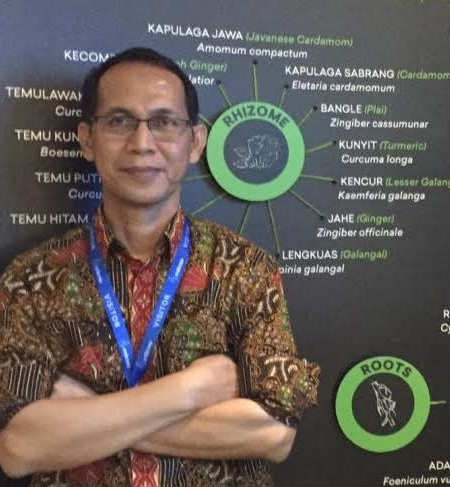IPB University Lecturer Discusses Vetiver as a Conservation Plant for Flood Prone Areas

12 Local Governments set the status of emergency response after being hit by floods and landslides caused by rain with high intensity accompanied by strong winds since the end of last year.
One of the IPB University lecturers, Dr. Meika Syahbana Rusli said that there were several plants that had the potential to reduce landslides. One of them is fragrant root plants. Fragrant root plants (Crysopogon zizanioides) or commonly known as vetiver have been used to produce essential oils and are used as raw materials for perfumes with relatively high prices. Economically, this essential oil is one of Indonesia’s leading export commodities.
“In addition to producing essential oils, fragrant root plants can become land and water conservation plants because they have many roots and can be two to three meters long. Fragrant root plants also have a tensile strength (tensile strength) 1/6 of iron so that when integrated with the soil can form a matrix that makes the soil structure sturdy. With the ability to form a solid soil matrix, fragrant root plants can be useful as a deterrent to landslides, “explained Dr. Meika, Founder and Chairperson of the Indonesian Atsiri Council (DAI) in 2010-2015.
The IPB University lecturer from the Department of Agricultural Industry Technology explained that to make better use of vetiver plants only focuses on one function, namely the conservation or production of essential oils. This takes into account the differences in planting period needed and considers the harvesting of the roots of the plants. If all the roots are harvested simultaneously it can damage the solidity of the soil structure that has been formed.
“The advantage of fragrant root plants is that they are easy to grow. The age of the plant can be one year if the oil will be taken, but for the purpose of conservation of land, it can be 3-4 years, depending on soil conditions. In Indonesia, the cultivation of fragrant roots is currently more widely used to produce essential oils and as a craft product from fragrant root that has dried. But there is a chance the two goals can be combined, if intercropping can be developed with selective crop management, “added Dr. Meika.
Dr. Meika further expressed her hope that attention to the cultivation of essential oil producing plants would be increased. Especially on the other hand, we are also concerned about the condition of environmental damage that has resulted in floods, so there is a need for integration.
“My hope, can be found intercropping system that allows fragrant roots can become a conservation plant and after a certain period of time there can be harvested for use of essential oils. This is a challenge for IPB University in finding suitable intercropping patterns so that it can provide economic value and environmental value to this fragrant root product, “concluded Dr. Meika. (IAAS/NAS)
Keywords: Fragrant roots, Experts, Landslides, IPB lecturers


